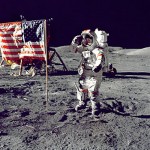Articles in Science
Re’e: The Cellphone Problem

Cellphone, a word my grandmother never heard, is a huge part of my life. People, the world over, communicate via cell phone to the extent that landlines are being phased out and snail mail is a thing of the past. But the convenience comes with a price. In fact, many …
Noach: A Rainbow

Rainbow – Bow in the Rain
Dolly Parton once said that if you want the rainbow you gotta put up with the rain.
What is a rainbow? It is light refracted through a rain drop. Beams of light appear to be white, but they actually have many colors that the eye can’t …
Bereshit: Name Calling

What’s In A Name?
Here is a trivia question for you: Can you name the first scientist in all of history? Here is another question: Is science the work of G-d or does it merely satisfy human curiosity?
If you guessed Adam, you guessed right. If you answered that science is G-d’s …
Shlach: Boots On The Ground

Ritual
I’m often asked how to make ritual exciting. It’s sad, but true that many Jewish children are raised with a ritualistic form of Judaism that lacks spirit and it is difficult for them to be inspired by meaningless rituals that feel repetitive and redundant. My answer is always the same. …
Vayakhel Pekudei: Ritual With Passion

The Conundrum
I have a friend, a brilliant intellectual, who does not suffer fools lightly. From time to time I invite him to Synagogue and he reminds me that he does not have much tolerance for those who make too much of ritual and pay little heed to its underlying philosophy.
Tweet
Crystals of Life
A Celestial Impact
On Friday, October 9, 2009, NASA scientists intentionally crashed a 2.2 ton rocket into the moon to determine whether water exists on our closest celestial neighbor. The rocket’s impact – it came in at 5,600 mph, twice the speed of a bullet – threw up 772,000 pounds of …
Vaetchanan: Science and Faith

July 21, 1969
Monday July 21, 2009, marked forty years since Neil Armstrong, stepped off the Apollo 11 and set foot on the moon. Forty years is a long time; our sages taught that students do not fully assimilate lessons learned in their youth until forty years have passed. (1) Today, …
























